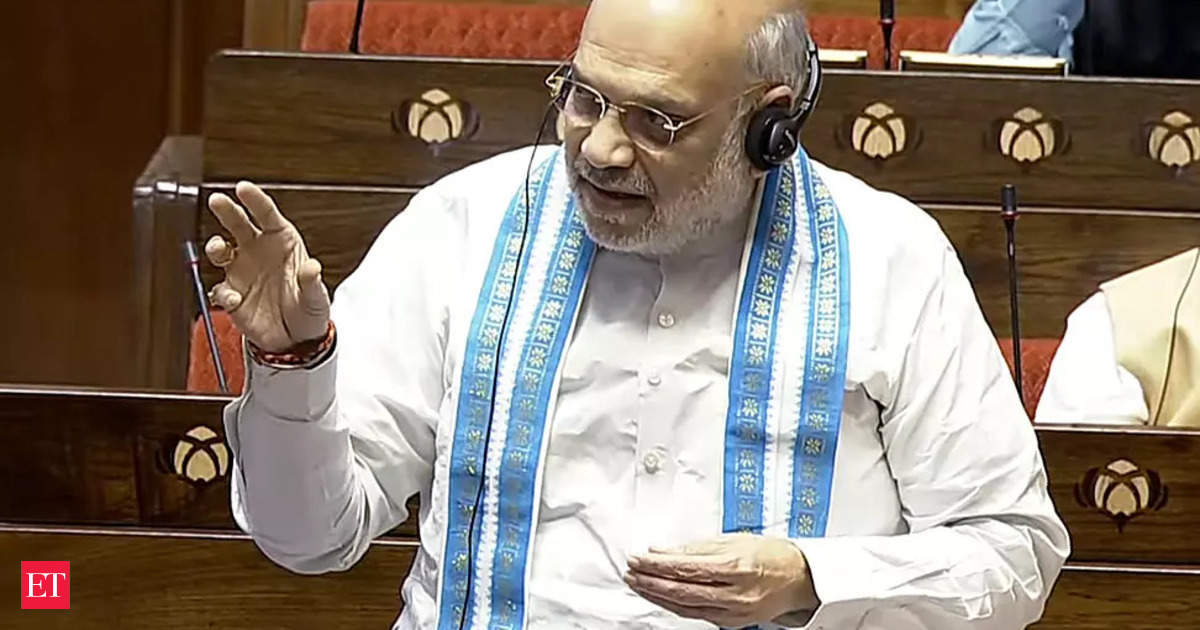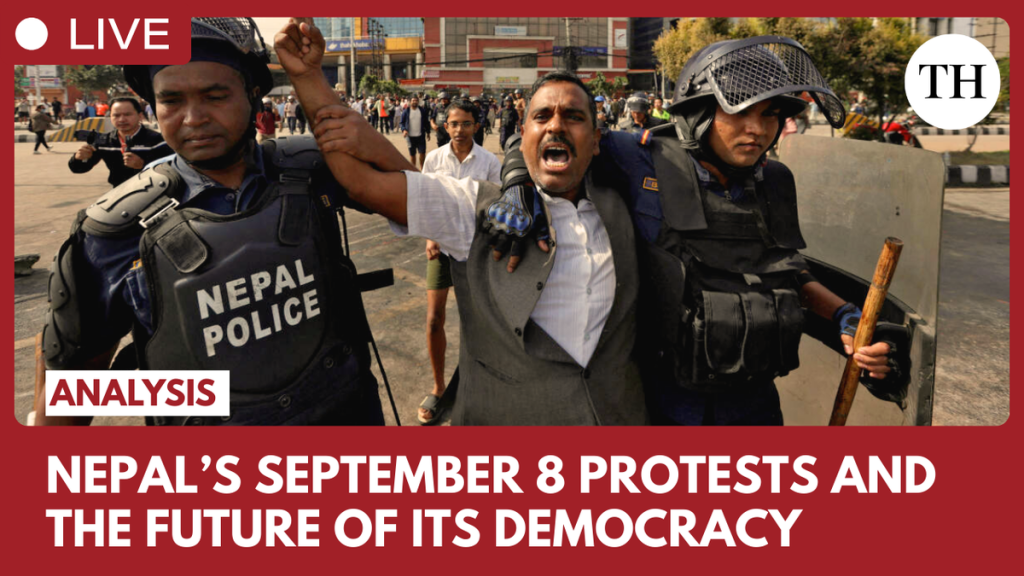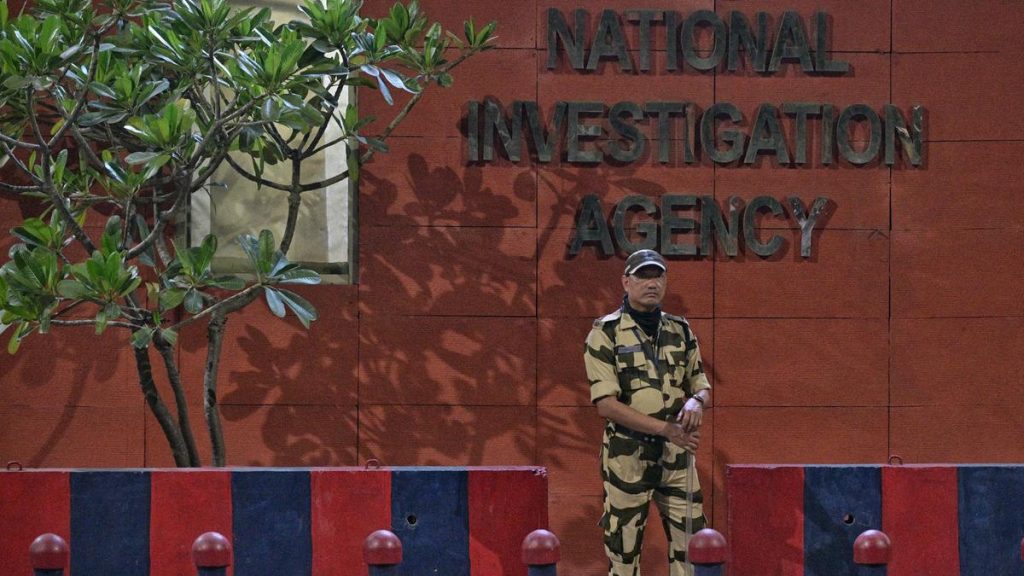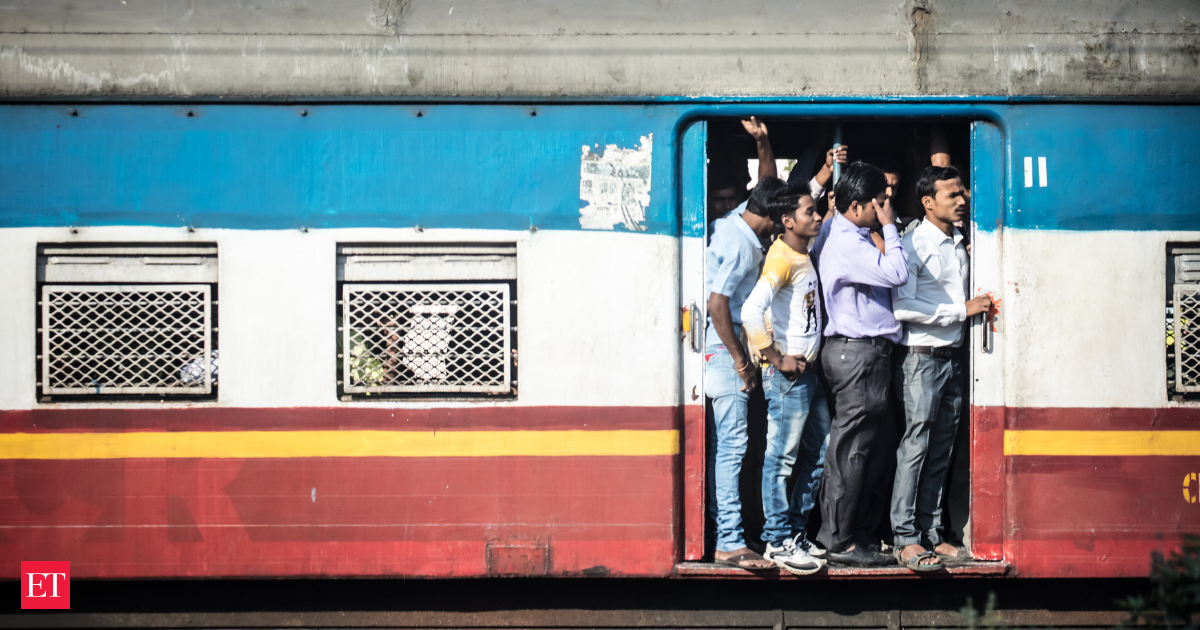Now Reading: Amit Shah Highlights Modi Govt’s ‘Zero Tolerance’ Stance on Terrorism in Rajya Sabha
-
01
Amit Shah Highlights Modi Govt’s ‘Zero Tolerance’ Stance on Terrorism in Rajya Sabha
Amit Shah Highlights Modi Govt’s ‘Zero Tolerance’ Stance on Terrorism in Rajya Sabha

Rapid Summary
- Union Home Minister Amit Shah reiterated the Modi government’s zero-tolerance policy towards terrorism during a Rajya Sabha discussion on the Ministry of Home Affairs’ functioning.
- Shah announced plans to make India Naxal-free by March 31, 2026.
- He criticized previous administrations for being lenient on terror and highlighted structural reforms implemented in the last decade under PM Modi’s leadership.
- Terror-related deaths in Jammu and Kashmir have reduced by 70% during Modi’s tenure, with a notable decline in terror incidents.
- Key achievements cited for Jammu and Kashmir include:
– Abrogation of Article 370, fulfilling the vision of ‘one Constitution, one flag.’
– Industrial investments worth rs 12,000 crore materialized; MoUs signed worth Rs 1.1 lakh crore.
– Creation of over 40,000 government jobs and more than 1.5 lakh self-employment opportunities since August 2019 reform measures.
- Other highlights include improvements in Northeast security and economic growth hindered earlier by extremism.
- Security challenges like cybercrime, narcotics trafficking, hawala operations were noted as notable areas requiring cross-border cooperation.
- Shah expressed gratitude for sacrifices made by central paramilitary forces and state police to strengthen India’s internal security.
Indian Opinion Analysis
Union Home Minister Amit Shah’s address reflects a thorough overview of india’s internal security landscape under the current governance-highlighting reforms that aim to tackle systemic issues like terrorism, Naxalism, cybercrime, and organized crime networks effectively across state borders. Promising India will be “Naxal-free” by March 2026 demonstrates an assertive stance but remains an aspiring goal requiring sustained efforts from both central forces and states.Jammu & Kashmir’s developmental advancements following Article 370 abrogation suggest tangible positive outcomes such as reduced terror activities alongside industrial investments driving local progress over four years-a key metric frequently enough debated among stakeholders regarding long-term stability.
While past administrations were criticized for softer policy approaches towards terror threats-as stated in Shah’s remarks-the focus now appears starkly directed at integrating national-level strategy with inter-state collaboration against emerging challenges (e.g., cybersecurity). Success hinges not only on robust national policies but also coordination between states facing unique security concerns amplified within India’s diverse administrative landscape.

























